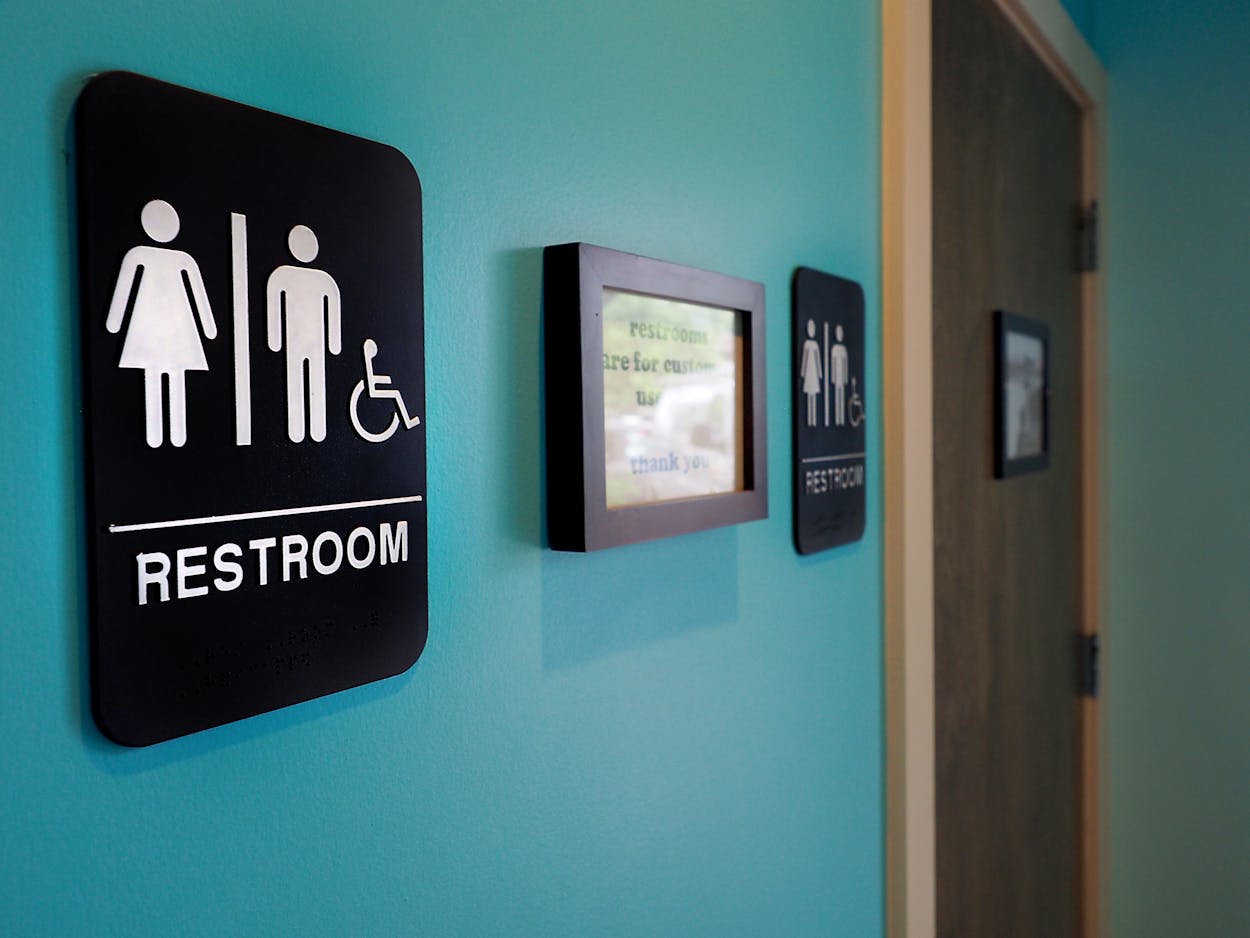When Toyota wanted to move its national headquarters to Plano in 2014, the corporation insisted the city government pass an ordinance to protect its lesbian, gay, bisexual, and transgender employees from discrimination by local businesses. Plano swiftly complied. Similar ordinances have been passed by city councils in Austin, Dallas, Fort Worth, San Antonio, and Rockwall, while one passed by Houston was overturned by a local referendum in 2015.
But the new Senate Bill 6 being proposed by state Senator Lois Kolkhorst and Lieutenant Governor Dan Patrick likely would overturn at least a portion of every one of those ordinances. The bill would prohibit local governments from requiring private businesses to allow transgender people to use the restroom of their identity rather than their gender at birth. By negating one portion of the local ordinances, the Legislature might force the local governments to go back and re-enact the remaining portions of their local rules, opening them up once against for debate at the city council level. A similar legal battle between the City of Charlotte and the North Carolina legislature already has resulted in an estimated loss of about $1 billion in tourism, sporting events, and corporate expansions.
But Patrick is all about your gender on the day you arrive in your birthday suit. If your heart and head later tell you that you are not the boy or girl who your mother wrapped in a blanket and nurtured, too bad. Protecting your right to pursue happiness with your new gender identity is just far too likely, in Patrick’s view, to invade the privacy of others or give cover to the sexual predators who will use it as an excuse to prey on others in changing rooms, public showers and restrooms. So the state needs to step in to tell locally elected city councils, locally elected school boards, and colleges what is best for them.
Some of the major provisions of the bill are:
- Local governments cannon pass ordinances telling private businesses how to regulate use of their bathrooms.
- Local governments cannot use company policies on bathroom use to determine whether the firm receives a government contract.
- Public schools and open-enrollment charter schools must adopt a policy designating multi-occupancy changing facilities and bathrooms by gender and restricting their use to students by the biology of their birth.
- School districts may accommodate transgender students with a single occupancy bathroom if there are “special circumstances.”
- Public buildings also must adopt gender-specific bathrooms when they are multi-occupant, but may accommodate an individual with a single-occupancy bathroom if there are “special circumstances.”
- A school district, open-enrollment charter school, state agency, or political subdivision that violates the law would be subject to a first-offense penalty of $1,000 to $1,500 and civil penalties of up to $10,500 for subsequent violations.
- The bill also would enhance penalties for crimes that occur in a bathroom or changing facility.
A coalition of Texas businesses remains skeptical of the legislation and claims it could cost Texas up to $8.5 billion in lost tourism, sporting events and corporate relocations or expansions. Chris Wallace, president of the Texas Association of Business, said corporations need to recruit employees from all over the nation and millennials are far more sympathetic to LGBT issues than people from older generations. “It’s unnecessary legislation,” Wallace said. “We don’t want to do anything to tie the hands of business to recruit workers.”
Wallace said the Patrick plan is almost identical to HB 2, the legislation that created a blow-up in North Carolina, resulted in cancelled sports events, rock concerts, and led major corporations to halt expansion plans in the state. (HB2 also contributed to the defeat of North Carolina Governor Pat McCrory, a Republican. After the election, the North Carolina legislature met briefly to consider repealing HB2 but ultimately decided not to.)
Chuck Smith, CEO of Equality Texas, echoed many of the economic arguments, but he also noted that Austin, Dallas, and Fort Worth have had non-discrimination ordinances for more than a decade without problems, and San Antonio has had such an ordinance for about five years. “The legislation is completely unnecessary. Transgender people didn’t just start to exist,” Smith said. “Any legislation that would target any group of people for discrimination is morally bankrupt and wrong.”






